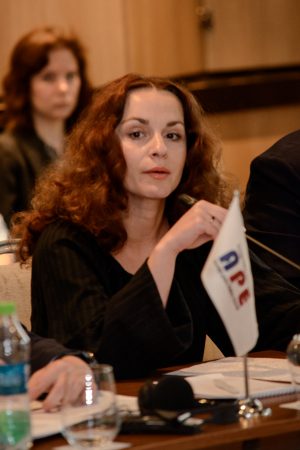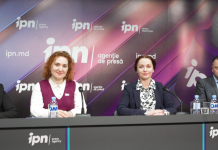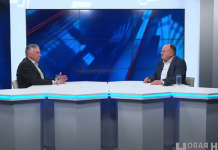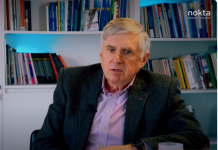The Republic of Moldova is facing unprecedented challenges and consequences because of the Covid-19 pandemic, and the citizens’ expectation from the Moldovan leadership is extremely demanding and rightly so. To contribute to decrease and prevention of the coronavirus spread, authorities conducted various community alertness and raising awareness activities, sharing accurate information on Covid-19 in line with the World Health Organization and the Ministry of Health, Labor, and Social Protection measures.
Notwithstanding that, the Moldovan Government has presented a range of different measures to prevent the influence and spread of the external disinformation regarding the Covid-19, the political authorities’ failure to control the fake information becomes more evident. Moreover, disinformation as a powerful tool for political manipulation is widely used by the state actors. The high media activity of Moldovan leadership in social networks during the state of emergency is an additional point for the increasing their positive media rating. In the end, we have a widespread governmental awareness campaign of the Government in the current pandemic crisis is extremely politicized.
In most of the democratic countries, political leaders are responsible for explaining very complex situation regarding Covid-19 pandemic and communicating the best available public health guidance to the population, thereby demonstrating control in handling the pandemic crisis. The confidence in authorities is fundamental for law-abiding principle, especially when the government is forced to use those measures that limit human rights and freedoms. In Moldova, the process is the opposite. The citizens’ confusion, misinformation, ill-conceived reaction from the President, Parliament and the Government do not mitigate the situation. The society just has no faith that all undertaken measures by the authorities are justified and are aimed at protecting citizens.
There are few media outlets trying however to combat coronavirus mis- and disinformation, but unfortunately fake content of the narratives, informational manipulations are the part of the significant number of media products in Moldova media environment. The “Monitoring Report of the Independent Journalism Center” clearly reflects that media outlets have politicized the pandemic topics by presenting them from the perspective of some political preferences. Disinformation is always used with destructive or splitting intent, but on the eve of the presidential election this creates additional impetus to the internal political contradictions and polarization of the public opinion, increasing risks of an infodemic impact. A significant presence of the Russian media content and Russian TV channels in Moldovan media market had a serious effect, which included both false news and propaganda. Moldova faced the problem of balancing between the necessity to prevent the disinformation spread, thus blocking some news and online sources, and the right of freedom of speech and media. Given the ongoing pandemic situation, the question of information filters became a stringent need and emergency. Checking the credibility of the information presents a challenge in this area and now than ever requires an effective mechanism for improving fact-checking tools and credibility index in the media environment.
The pandemic has highlighted the vulnerability of civil society while demonstrating its cohesion in actions and response measures. NGOs and civic initiatives focused on supporting and protecting the health workers by promoting the principles of transparency and efficiency in use of public money. Also, in monitoring the respect of rule of law and human rights; analyzing the quality of proportionality and legality of the governmental measures taken in this critical period; calling the authorities for urgent measures aiming to support the business environment under the pandemic expansion.
Churches created additional difficulties through a series of propagandistic actions, which was and remains one of the sound disinformation sources among the Moldovan society, including spreading fakes about 5G and virus origin. It must be mentioned that the most of the narratives were similar to those spread by the Russian Orthodox Church. The main narratives in Moldova were about methods of treatment, fears about impossibility to recover, as well as conspiracy theories (population chipping, 5G, US laboratories).
In the course of the pandemic time, the Moldovan leadership obviously must review its policies in terms of hybrid threats response based on lessons learned along the Covid-19 outbreak in general and media policy in particular. Disinformation and misinformation are elements of deeper structural problems of the Moldovan society and media environment. The existing issues obviously demonstrate the emergent need to strengthen democratic resilience and adopting media policies through regulation of political and public issue advertising, data protection, strengthening pillars of political trust in government institutions and trust in the media accuracy. Under the present conditions, when a pandemic is characterized by the massive use of information technology and social networks to raising and awareness, particular attention should be paid to open, transparent communication by the authorities and the media, as well as to the development of initiatives to improve the information literacy of the citizens.
The article was elaborated within the research project ”Coronavirus crush test: Disinformation Resilience of the EaP states and Romania”, implemented by the Foreign Policy Council Ukrainian PRISM with the support of Black Sea Trust for Regional Cooperation. Foreign Policy Association was the regional partner in Moldova.







